Keeping your baby's dishes clean is important, but using the wrong dishwashing detergent can leave your little one with a sour taste in their mouth. Say goodbye to worries with these 5 baby-safe dishwashing detergents.
The best baby-safe dishwashing detergent can make a world of difference when it comes to cleaning up a baby's feeding equipment. Not only will you be able to get rid of those pesky old smells, but you'll also be ensuring that all of your little one's bits and bobs are clean and sterile in the process.
It might sound like an unnecessary step, but if your child is still young then there's no better time than now to practice good hygiene habits. After all, this could even help prevent any food allergies from developing further down the line.
The fact that there are so many different options out there also means that picking one can prove difficult.
That said, we've done the hard work for you and have shortlisted some of the very best baby-safe dishwashing detergents available right now.
How We Choose
Here at Bertie's Buzz, we looked at a variety of factors when choosing the best baby-safe dishwashing detergents, We carefully selected the most reliable dishwashing detergents for babies, ensuring that each product met or exceeded safety standards while still providing powerful cleanliness. With our list of recommended products, parents can now confidently tackle messy dishes knowing their families are safe and sound!
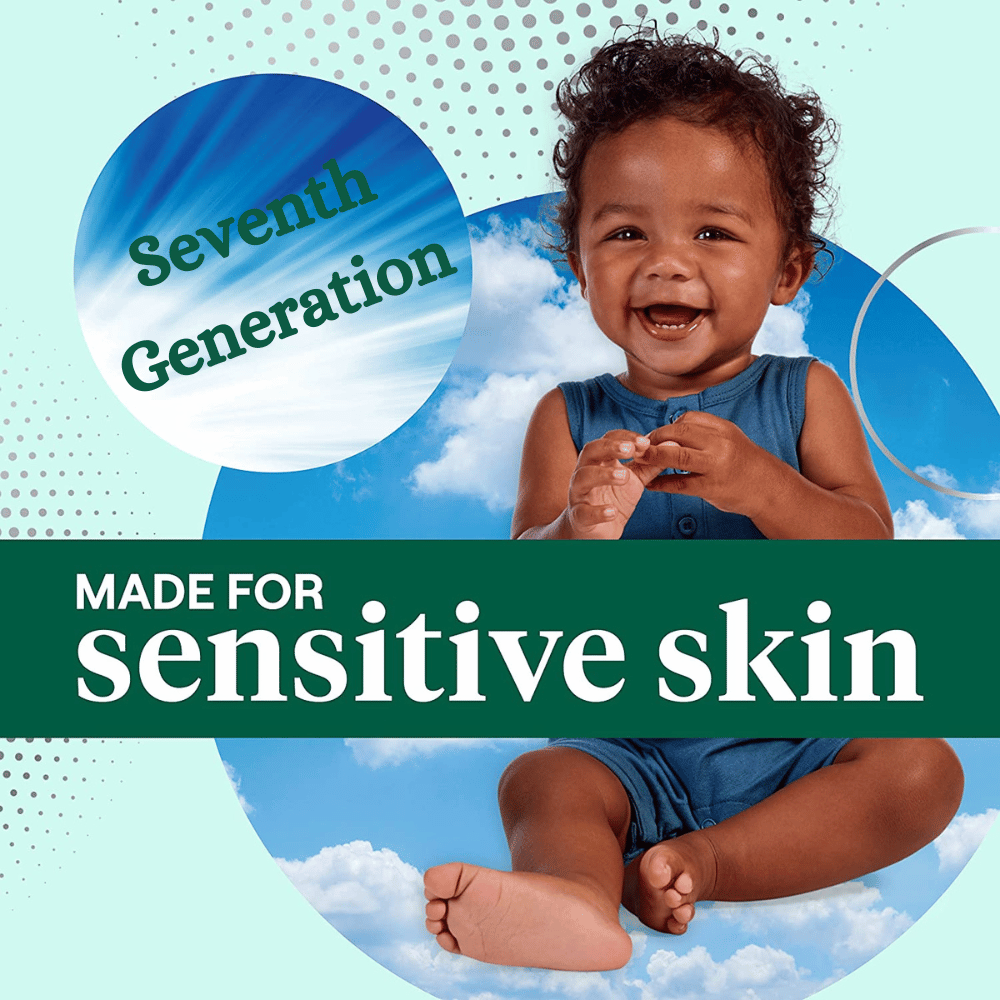
Seventh Generation Dishwashing Soap for Sensitive Skin
Scores Well In Every Category
Why We Love It:
The best dishwasher detergent on this list is the Seventh Generation Free & Clear Liquid Dish Soap, which scores well in every category. It's a biodegradable product that's USDA Certified Biobased, meaning it uses renewable resources and reduces carbon emissions.
It doesn't use any harmful chemicals or phosphates, so it's safe to use around your home and won't damage your dishes. It also has no artificial fragrances or dyes, making it an excellent choice for people with allergies or sensitivity issues.
Why We Love It:
Dapple Baby is another vegan-friendly brand that can be relied on to produce a high-quality product. The bottle and dish soap in particular is praised for its effectiveness at removing fat, protein, and carbohydrate residue from breast milk bottles, which leaves a layer of gunk behind.
This plant-based formula has been tested by an independent lab to remove up to 50% more milk film than other leading brands. It's also hypoallergenic and pediatrician-tested for safety, as well as free from very strong chemicals such as parabens, phthalates and sulfates.
We liked the nontoxic baking soda used in this plant-based formula to combat any lingering odor too; it does this by neutralizing the hydrogen sulfide responsible for many household smells.
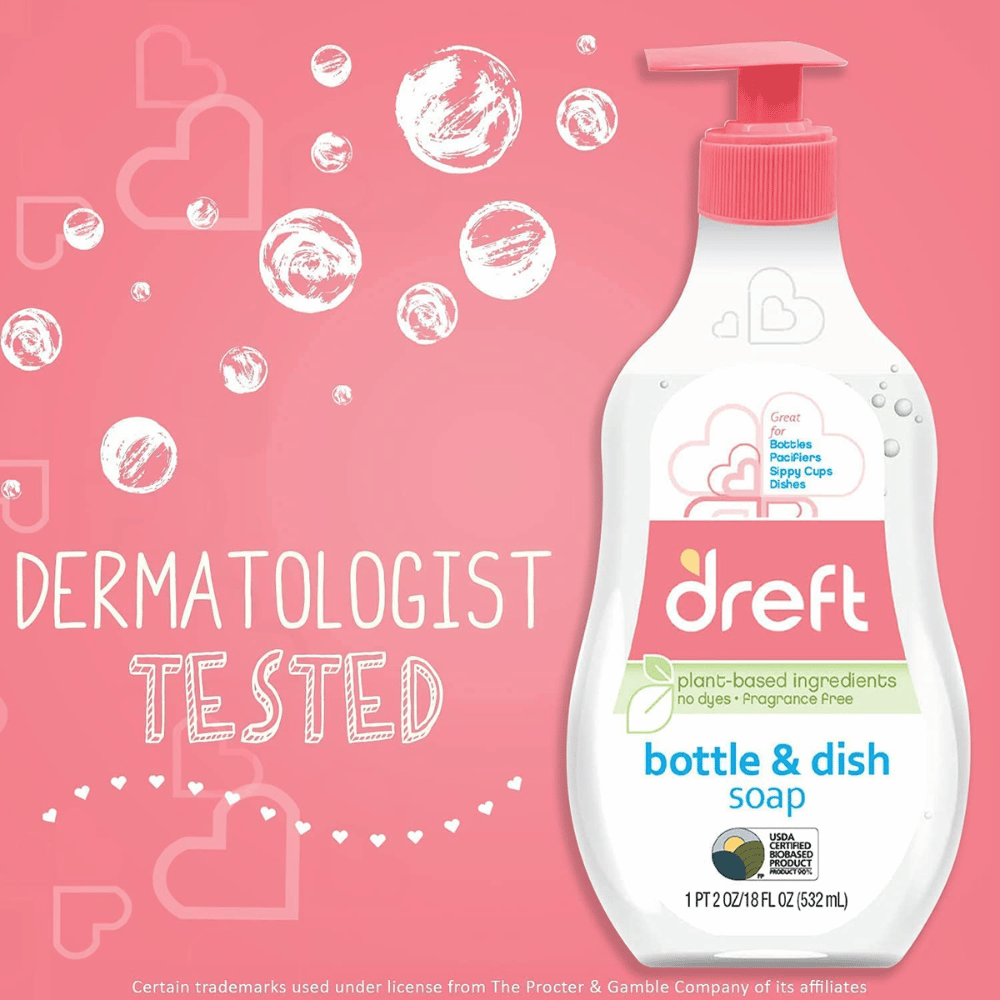
Dreft mBaby Bottle and Dish Soap
No. 1 Pediatrician-Recommended For Whole Family
Why We Love It:
The Dreft mBaby Bottle and Dish Soap is the number one pediatrician-recommended baby soap for your whole family! This plant-based soap is gentle on sensitive skin, hypoallergenic, and dermatologist tested.
We know how important it is to keep your little one safe when cleaning with soap and detergents. That's why we love this formula. It contains no harsh chemicals like parabens, sulfates, phthalates, synthetic dyes, fragrances, chlorine, formaldehyde alcohols (SLS/SLES/MEA/DEA/TEA), or Methylisothiazolinone. That way you can be sure our bottle and dish soap won't cause harm or irritation to your baby's delicate skin while also taking care of all their bottles, sippy cups, pacifiers, breast pump components, and utensils – or even the whole family’s dishes!
This 100% USDA Certified Biobased Product promises a safe clean that goes beyond just being free of nasty chemicals. Vegan-friendly and 90% plant-based ingredients make Dreft mBaby Bottle and Dish Soap the perfect choice for busy parents who want quality they can trust while still being gentle on their little ones.
Dreft mBaby Bottle and Dish Soap will keep your little ones safe without compromising on hygiene for an impeccably clean result every time.
Why We Love It:
If you're a parent looking for an all-natural, effective, and safe dish soap for your little one's bottles and accessories, look no further. Babyganics Foaming Dish & Bottle Soap is the perfect solution!
This plant-based dish soap comes packed with thoughtful ingredients designed to easily remove dried milk, food, grease, and gunk with just a single pump of foam. It's free of phosphates, phthalates, fragrances, or dyes so gentle on your baby's skin yet incredibly powerful at removing those everyday messes.
Plus it not only works great on breast pump accessories but can be used for all of your everyday dishwashing needs. Not to mention this bottled soap won't irritate the skin and is dermatologist tested to ensure safety. What more could you want?
All that plus it's non-toxic and made without any animal testing - making this the ideal choice when it comes to family-friendly dish soap that won't harm anyone in your home!
Why We Love It:
Attitude Baby Dish Soap is an excellent dishwashing liquid for your family bubble! This baby dish soap is rated A on EWG’s guide to healthy cleaning, so you can have complete peace of mind when using Attitude.
This plant- and mineral-based liquid is certified by ECOLOGO for having a reduced impact on the environment and is biodegradable. PETA Certified, this soap has never been tested on animals and proudly boasts a vegan formula.
When it comes to washing breast milk and formula residue, grease, odors and various foods from plates and utensils, you want something that actually works, and Attitude Baby Dish Soap fits the bill! Its saponin-based composition effectively breaks down particles without leaving a film or residue behind.
Attitude is a company that believes in making natural products with earth-friendly ingredients that are safe for your little ones. With Attitude Baby Dish Soap, you get amazing cleaning power plus an extra layer of confidence knowing that each bottle is recyclable.
We understand keeping your family safe isn’t easy cue Mom dance but Attitude makes it as effortless as possible with their baby dish soap.

Bertie's FAQ & Guide Section
Babies are cute, but they can make a mess of things.
There is so much information out there about baby products and it can be hard to figure out what the best choice is. You want to make sure the products you're using are safe for your little one, but you may not know where to start.
We've created this list of the top questions and concerns people have about dishwashing detergent for your baby bottles and utensils and answered them accordingly. With this information, you will feel confident in your purchase and use of dishwashing detergents for your baby bottles, utensils, and other products that come in contact with food.
Do Babies Need Special Dish Detergent?
Yes, babies do need special dish detergent. Regular dish detergents can contain harsh chemicals that are not safe for a baby's delicate skin.
That said, it's important to choose a dish detergent that is specifically designed for babies. Look for a product that is free of strong chemicals and fragrances, and make sure to read the ingredients list carefully to be sure that all of the ingredients are safe for the baby's skin.
So if you're looking for a safe and effective detergent to use around your baby, be sure to choose one that is gentle and fragrance-free.
Is Regular Dishwasher Detergent Safe For Baby Bottles?
Dish detergents contain harsh chemicals, so it's important to use them properly. They should not be used in place of specialized baby bottle cleaners, which are specially formulated for plastic bottles and include gentler cleaning agents such as citric acid. Dish detergents can leave residue on the inside of a bottle that can taste bad and make a baby sick, according to Parenting magazine.
Plastics are porous materials and dish soap can damage them if there is too much leftover inside the bottle or it gets trapped under the lid seal during washing. Even a small amount of residue left behind can smell bad to the baby when she drinks from her bottle, so thorough rinsing is essential.
Before putting your baby bottles in the dishwasher, check their manufacturer's instructions first. Some companies recommend hand washing only because dishwashers put their bottles under hot water for long periods – conditions that may damage the plastic over time.
When Can You Start Putting Baby Bottles In the Dishwasher?
There really isn't a general answer to this question since different dishwasher detergents might have different guidelines as to when they are safe to use on baby bottles. Generally speaking, you should wait until your baby is at least 6 months old before putting any dishes in the dishwasher, even if they are designated as being "dishwasher safe."
It's always a good idea to check with the manufacturer of both your dishwasher detergent and your baby bottles to see what their specific recommendations are. In most cases, it is probably better to just hand-wash your baby bottles instead of risking any damage that might be caused by using a harsh dishwashing detergent.
Is It Better To Hand Wash Or Dishwasher Baby Bottles?
There are pros and cons to both hand washing and dishwashing baby bottles. The main advantage of hand washing is that it allows you to be more thorough in your cleaning efforts since you can get into all the nooks and crannies of the bottle. The main advantage to dishwashing is that it's faster and requires less effort.
Some people might also argue that dishwashing machines are better at sanitizing bottles than hands are, but there is no scientific evidence to support this claim. One study found that both hand washing and dishwashing were equally effective at removing bacteria from baby bottles.
So the bottom line is that it doesn't really matter which method you choose - as long as you are cleaning your baby bottles thoroughly and regularly, they should be safe and free of germs.
At What Age Can I Stop Sterilizing Babies Bottles?
There is no definitive answer to this question. Some parents stop sterilizing bottles at around 6 months, some continue until the baby is 1 year old, and still, others may sterilize their baby's bottles until they are older. The important thing is to find what works best for you and your child.
There are a few things to consider when deciding whether or not to sterilize your baby bottles:
- How often are you going to be using the bottle? If you will only be using it occasionally, then it may not be worth the trouble of sterilizing it. However, if you will be using it every day, then it's probably a good idea to sterilize it.
- What kind of bottle cleaner are you using? If you're using a specialized baby bottle cleaner, then it may be safe to start skipping the sterilization step. However, if you're still using dish detergent or other harsher cleaning methods, then it may be best to keep sterilizing until your baby is older. How old is your baby? Once your baby starts eating solid foods, it's generally safe to start phasing out the sterilization process.
- Finally, always use your best judgment when deciding whether or not to sterilize your baby bottles. If you're ever in doubt, it's better to err on the side of caution and keep up with regular sterilizing until you reach a point where you're confident that your baby won't be exposed to any harmful bacteria.
Do I Have To Sanitize Baby Bottles After Every Use?
While it is a good habit to wash your baby's bottles after each use, you don't have to go overboard and do it every single time.
It might be helpful to keep an extra set of bottles on hand so that while one batch is being sanitized, you can be using the second set for feedings. This way you can make sure those bottles always feel fresh and clean.
Bacteria can grow very quickly in milk and other liquids that are left in baby bottles, so it is important to clean them regularly. Washing them with hot water and soap will kill most of the bacteria, but it is also important to dry the bottles well so that no moisture remains. Bacteria can thrive in moist environments, so making sure the bottles are dry is an important step in preventing bacterial growth.
Can You Wash Pacifiers In The Dishwasher?
Pacifiers can be washed in the dishwasher, but it is not recommended. The dishwasher can cause the pacifier to become misshapen and discolored. It is best to clean pacifiers by hand with warm water and mild soap.
While it's possible to clean pacifiers in the dishwasher, we generally don't recommend it. The constant heat and drying action can warp your baby's favorite binky and render it useless.
Finally, never wash silicone or rubber nipples in the dishwasher since they cannot withstand high temperatures like other plastics can. Stick to hand-washing these parts instead!
What Happens If You Don't Sterilize Baby Bottles?
If you don't sterilize baby bottles, the bacteria inside the bottle can grow and give your baby a gastrointestinal infection.
The American Academy of Pediatrics recommends that you sterilize all new bottles, nipples, pacifiers, and other feeding supplies before using them to feed your baby. You can do this by boiling them in water for five minutes or by using a commercial sterilizer.
If you don't have access to a sterilizer, you can sanitize the bottles and nipples by rinsing them in hot water with dish soap or vinegar. Be sure to rinse them well so that all of the soap or vinegar is removed. You can also microwave-sanitize bottles and nipples by placing them in a partially filled container with water, microwaving the container for two minutes, and then allowing it to cool before using it.
If you don't regularly sterilize or sanitize your baby's bottles and nipples, your baby may be at risk of getting a gastrointestinal infection due to the growth of bacteria in the bottle. To help prevent this, make sure to clean the bottles and nipples after each use and sterilize them regularly.
Do I Need To Sterilize Baby Bowls, Sippy Cups, And Spoons?
While it's not strictly essential, sterilizing baby bowls, spoons and sippy cups can help reduce the risk of any upset stomachs. It's recommended that you give all your baby utensils an occasional deep clean in hot soapy water or in a dishwasher if possible. You can also sterilize them by boiling for up to five minutes or by soaking in some bleach (½ cup/4 fl oz is sufficient) for around 30 minutes.
Where Do You Store Baby Bottles After Sterilizing?
It's important to store baby bottles properly so they don't come into contact with odors or bacteria that could compromise their hygiene. It can be difficult to find the space for storing enough sealed bottles to last an entire day, but fortunately, bottle sterilizers are a handy solution for this problem.
You can store baby bottles in the refrigerator or a cabinet. If you store them in the refrigerator, be sure to remove them from the refrigerator 30 minutes before using so they will warm to room temperature. If you store them in a cabinet, be sure to keep them out of direct sunlight and away from heat sources.
What Dishwasher Detergent Is Safe For Babies?
When choosing a dishwasher detergent, you'll want to look for a fragrance-free and dye-free variety as this will minimize any potential allergic reactions in your baby.
As a wrap-up of our review on the best baby-safe dishwashing detergents for your kitchen, we know that keeping your baby safe and happy is always a priority, and using the right dishwashing soap can certainly help. With a wide selection of baby-safe dishwashing detergents on the market, it can be difficult to know what to choose.
To make sure your family has the perfect product, consider brands that leave out harmful chemicals like phosphates, chlorine, and fragrances. Also, look for plant-based cleaning agents instead of synthetic ones.
Finally, decide which product best fits your family's needs with price, convenience, and usage instructions in mind. Taking all these factors into account will enable you to select a detergent that guarantees squeaky-clean dishes for your little one's health and happiness! So now that you have reviewed the five best products for keeping your baby safe – which one will you select?
By the way, here are several other articles you might be interested in for your precious bundle!
"Perfectly Soft Projects with the Best Baby Yarn" and "Create with the Best Yarn for Baby Blanket Projects" if you love to crochet or knit or have a grandma that does (hint, hint!)
Thanks for stopping by our bee hive!

Bertie
Each product we reviewed was independently selected by our team, and all opinions in this article are our own. As an Amazon Associate we earn from qualifying purchases. We stay in business by receiving a small share of sales from the links on this page should you decide to buy something.





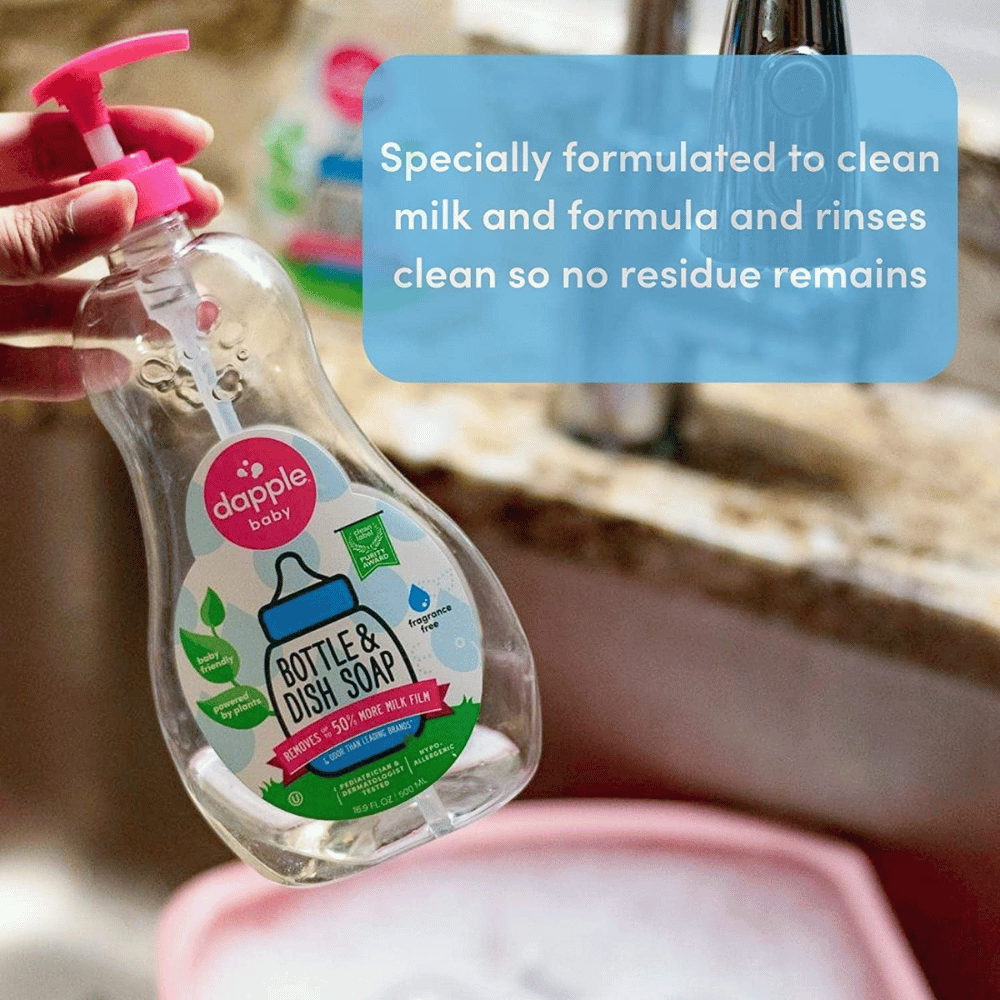
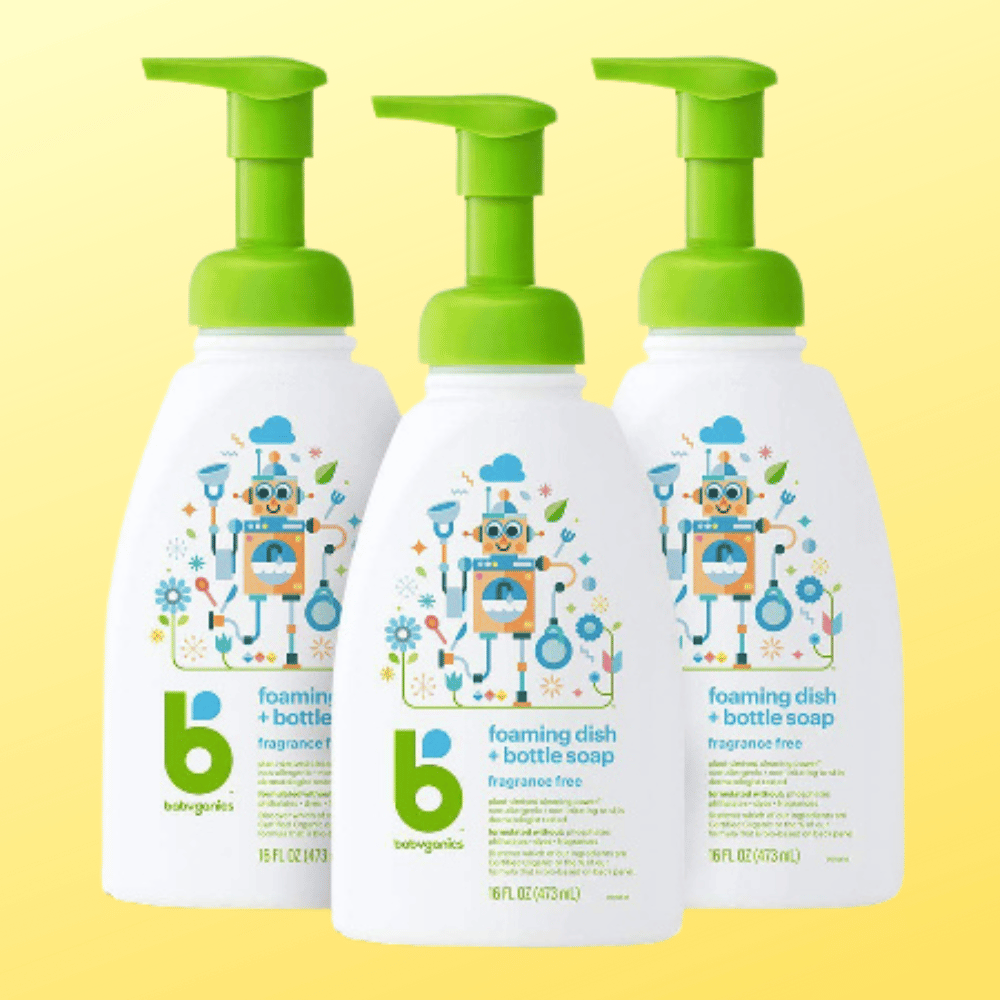
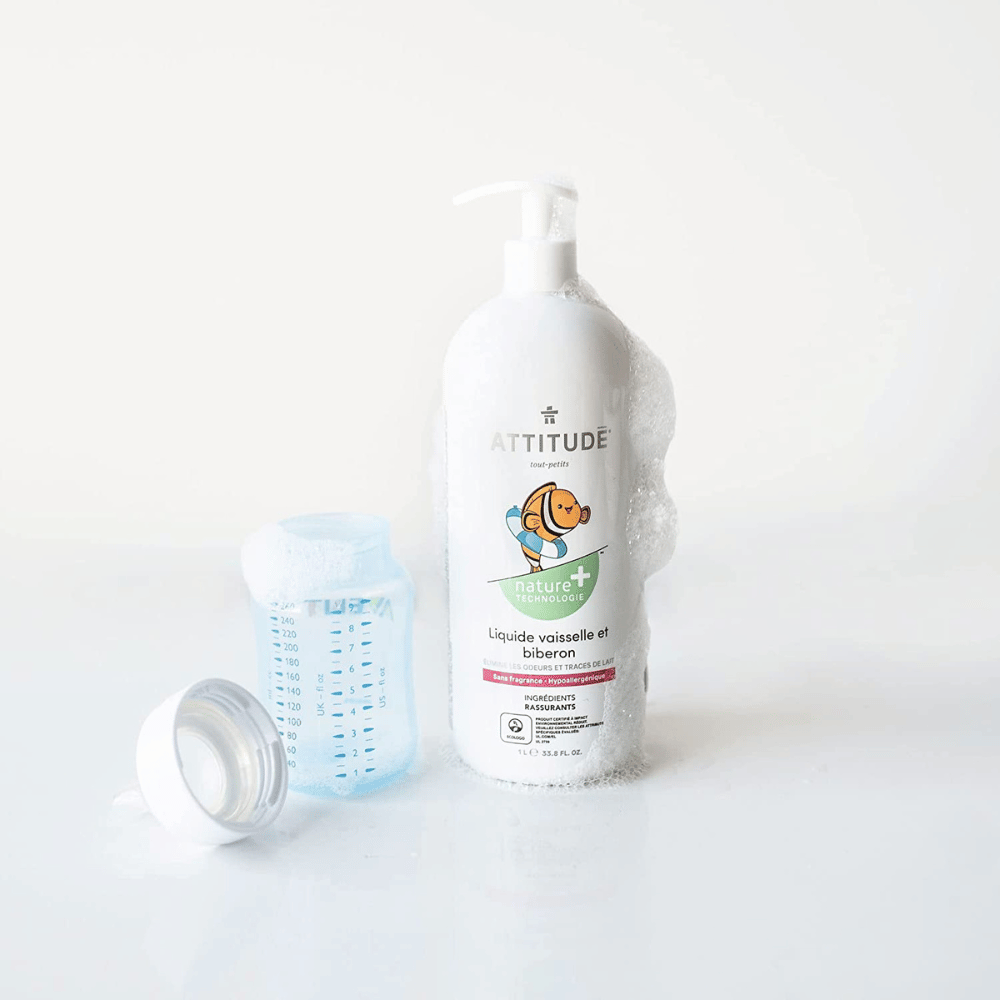

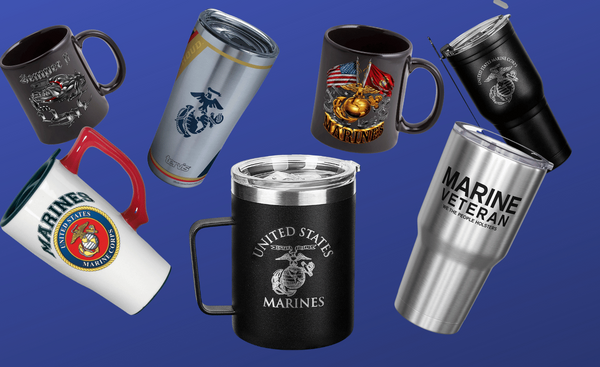
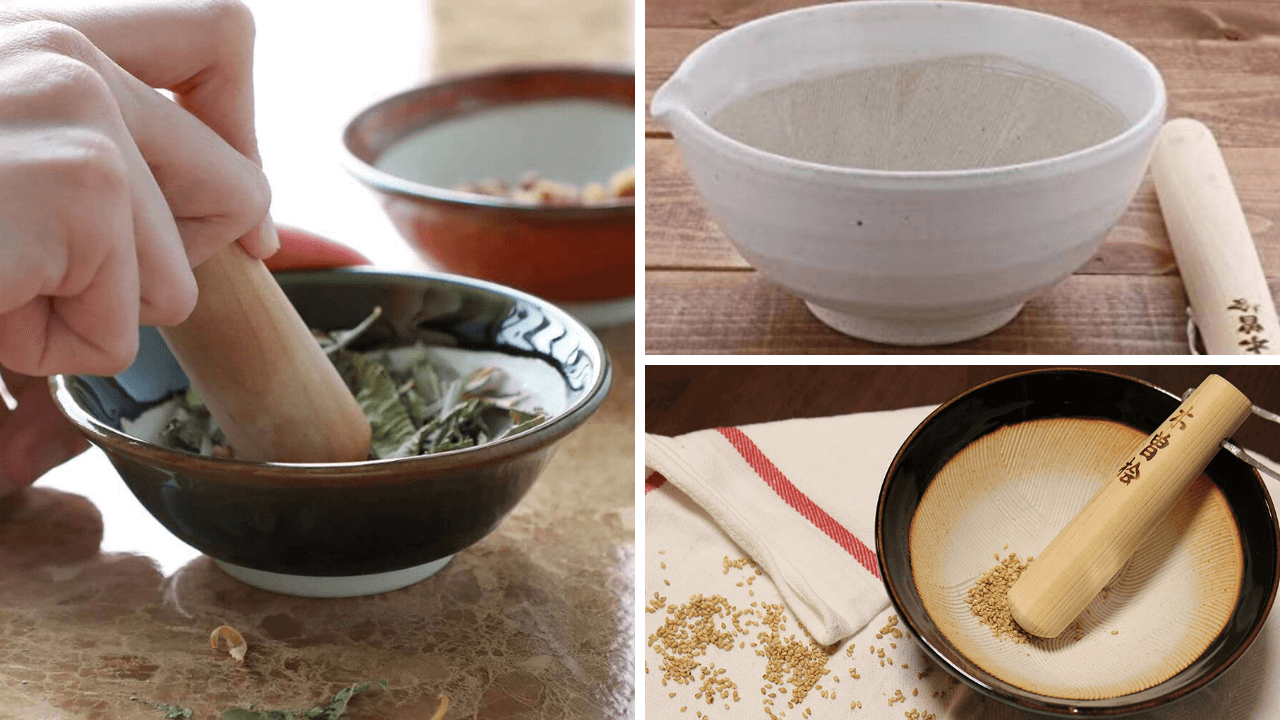

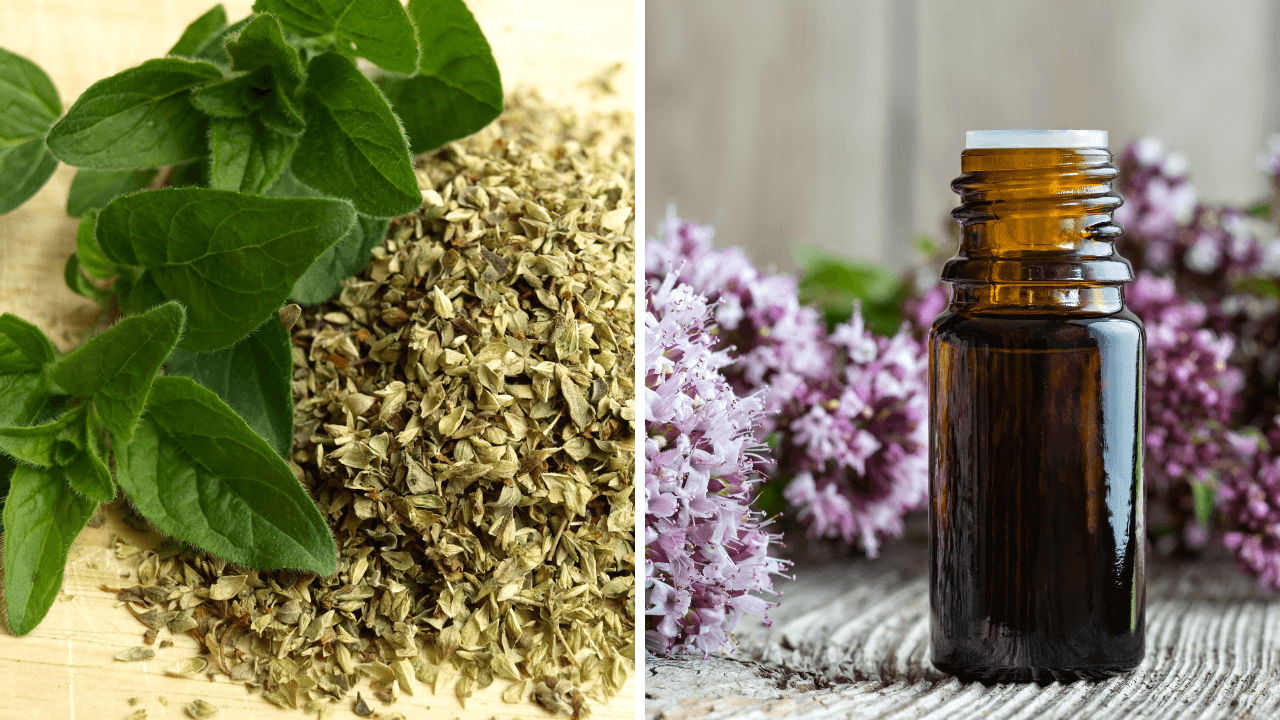
Member discussion